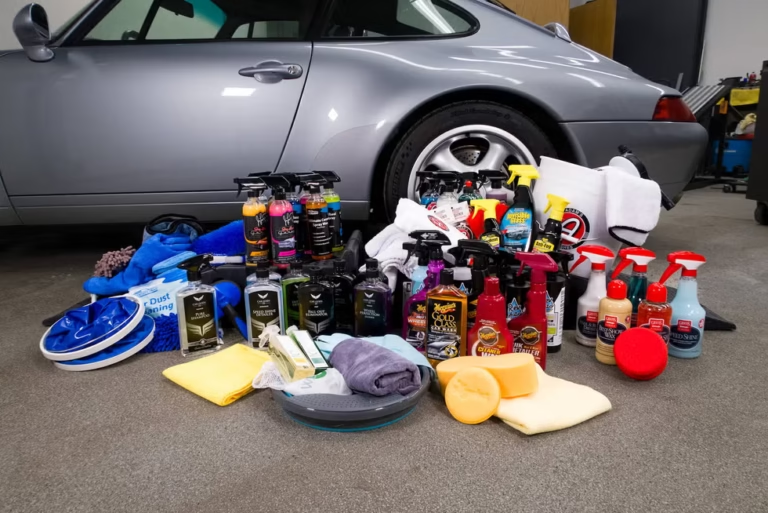Buying a Used Car? Here’s What Sellers Don’t Want You to Know
Buying a used car is supposed to be a way to save money and get a great deal, but not every seller has your best interest in mind. Whether you’re dealing with a private seller or a dealership, there are certain things they won’t tell you upfront. Some details are conveniently left out, while others might be deliberately hidden to make the sale more appealing.
If you’re in the market for a used car, you need to know the common tricks sellers use and how to protect yourself from making a costly mistake. This guide will reveal what sellers don’t want you to know—and how you can outsmart them.
The Price Isn’t Always a Good Deal
One of the biggest mistakes buyers make is assuming that a low price automatically means a good deal. In reality, a cheap car can end up being very expensive once hidden issues start surfacing.
What Sellers Won’t Tell You:
- The car might have been in an accident and repaired just enough to look good.
- It could have undisclosed mechanical problems that will cost thousands to fix.
- Some dealerships inflate the price and then offer a “discount” to make it seem like you’re getting a bargain.
What You Can Do:
- Check the market value of the car on trusted sources.
- Compare prices of similar models to see if the listing price makes sense.
- Be skeptical if the price is way lower than average—it could be too good to be true.
The Odometer Might Not Be Accurate
Odometer fraud is more common than you think. Some sellers roll back the mileage to make a car look less used, increasing its value. According to CARFAX, over 2.14 million vehicles in the U.S. have had their odometers tampered with.
What Sellers Won’t Tell You:
- The odometer might have been rolled back to hide high mileage.
- Some sellers swap out the dashboard to show a different mileage reading.
- A car with suspiciously low miles for its age might not be the miracle find it seems to be.
What You Can Do:
- Request a vehicle history report to verify mileage records.
- Look at wear and tear—a worn-out steering wheel, faded seats, and heavily used pedals don’t match up with low mileage.
- Use a trusted service like WA Revs Check to confirm the car’s history and ensure there are no hidden surprises.
The Car Might Have a Hidden Past
A seller isn’t going to volunteer the ugly history of the car. It could have been in a flood, stolen, or even previously written off as a total loss by an insurance company. Some sellers will fix up a damaged car just enough to sell it, leaving you to deal with the consequences later.
What Sellers Won’t Tell You:
- The car could have been in multiple accidents or had major structural damage.
- It might have been used as a rental or fleet vehicle, meaning high mileage and rough use.
- There could be outstanding loans or unpaid fines attached to the car.
What You Can Do:
- Always check the VIN (Vehicle Identification Number) and run a history report.
- Look for mismatched paint, uneven panel gaps, or signs of water damage inside the car.
- If something feels off, get a mechanic to inspect the car before you buy.
- The “Certified Pre-Owned” Label Isn’t Always What It Seems
Many dealerships push certified pre-owned (CPO) vehicles as if they’re practically new. While some are legitimately well-inspected and warrantied, others use the term loosely to charge higher prices without actually offering significant benefits.
What Sellers Won’t Tell You:
- Not all CPO cars go through a thorough inspection—some just get a quick once-over.
- The warranty might be limited and not cover major repairs.
- CPO cars are often more expensive without necessarily being in better condition than non-certified used cars.
What You Can Do:
- Read the fine print on what’s actually covered under the CPO program.
- Ask for inspection details—a real CPO car should come with a multi-point inspection report.
- Compare the cost difference between CPO and non-CPO cars to see if it’s really worth it.
Some Problems Don’t Show Up Until It’s Too Late
Even if a car looks and drives perfectly when you test it, some problems only surface after a few weeks or months. Sellers know this and often rush the sale before anything becomes noticeable.
What Sellers Won’t Tell You:
- Some mechanical problems are masked with quick fixes like thicker oil to silence engine noise.
- Electrical issues, transmission failures, and engine problems often take time to appear.
- The seller might pressure you to buy quickly before you have a chance to inspect properly.
What You Can Do:
- Take the car for a long test drive on highways, city streets, and rough roads.
- Have a trusted mechanic perform a pre-purchase inspection.
- Avoid rush deals—a good car will still be available tomorrow.
Tech Blaster
Final Thoughts: Be an Informed Buyer
Sellers—especially those looking for a quick sale—aren’t going to tell you everything you need to know. That’s why it’s up to you to do the research and protect yourself from hidden problems.
Quick Recap:
- Check the market price before agreeing to a deal.
- Verify the odometer reading and look for signs of fraud.
- Run a history check to uncover past accidents, loans, and hidden issues.
- Don’t assume Certified Pre-Owned means problem-free.
- Always get an independent mechanic’s inspection before buying.
Buying a used car doesn’t have to be risky, as long as you know what to look for and aren’t afraid to ask the right questions. Stay sharp, do your homework, and you’ll end up with a car that’s worth every penny.






